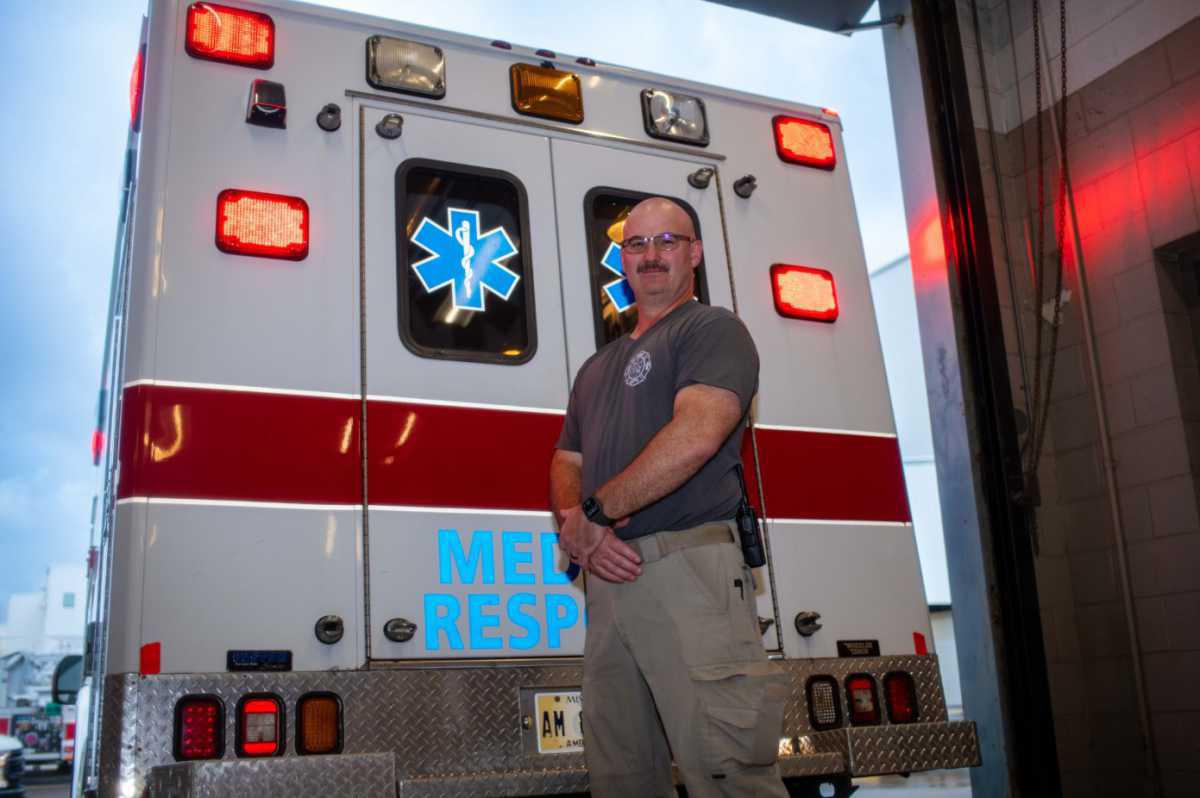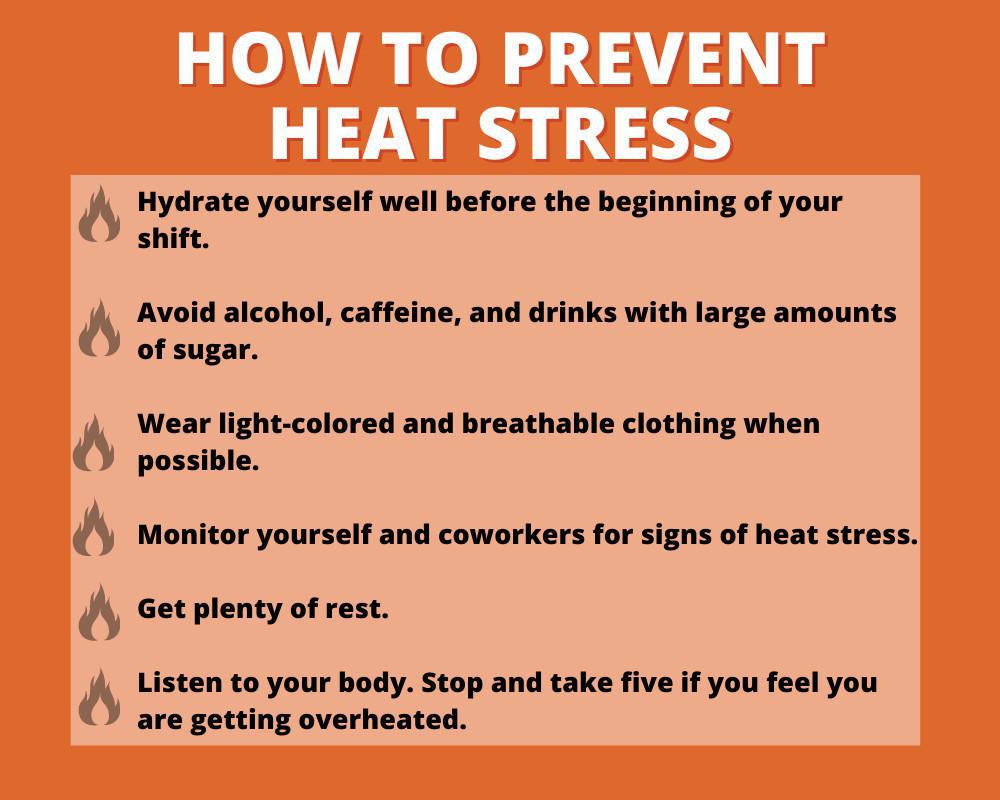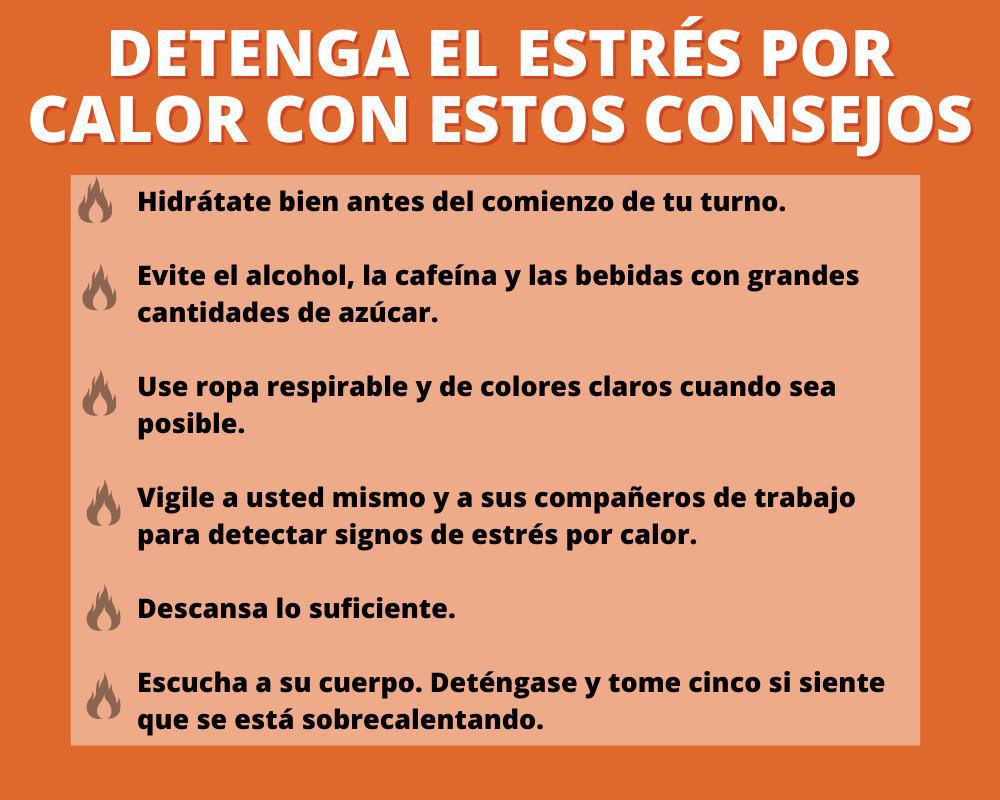Temperatures are expected to continue rising over the next month. Be prepared for a heat stress emergency by knowing what signs to look for, what to do if you or someone else are in danger, and how to prevent heat stress.
Signs of heat stress
The first thing is to be aware of symptoms indicating heat stress.
“If a person is in distress from the heat, they are going to stop sweating and start having cramps – abdominal cramps, leg cramps, arm cramps,” said Dayton Rouse, Firefighter/Paramedic, Battalion Chief. “They'll be cramping all over and will sometimes get disoriented so you want to try and get them seated in a cool place to not only help them cool off, but also make sure they are not walking around in unsafe areas.”
Other signs that may indicate a heat stress emergency include high body temperature, confusion, agitation, slurred speech, flushed skin that is hot and dry to the touch with minimal sweating, nausea and vomiting, rapid or shallow breathing, racing heart, and headache.
What to do in a heat stress emergency
If you or someone else are having any combination of symptoms, it’s important to immediately contact Ingalls Emergency Line.
“The first thing you need to do is call us for help as soon as possible,” said Rouse. “If the person is able to move, move them to a cool place and help them sit down. Then, you can give them water. If they’re where they can't move or be moved, just get everything out from around them.”
While waiting for first responders to arrive, immediate actions should be taken to try and cool the victim, such as making sure they are in the shade or air conditioning, removing any excess clothing, and cooling the victim with water, a fan, ice packs, or by placing wet towels on them.
What is heatstroke?
Heatstroke, which is the most severe heat stress condition, is a life-threatening condition that happens when your body temperature rises above 104 degrees. It’s usually the result of overexertion in hot, humid conditions. Untreated, heatstroke can lead to organ failure, a coma or death.
Preventing heat stress
The most important thing a person can do to avoid heat stress is to hydrate and make sure electrolytes are being replenished.
“Shipbuilders should not only be drinking two to three bottles of water an hour, but also making sure they replenishing their electrolytes,” said Rouse. “For every two bottles of water a person drinks, they should drink one bottle of Gatorade or PowerAde, or use an electrolyte packet. If a person is only drinking water, all they are doing is flushing their system. Our bodies lose electrolytes when we sweat so it’s very important to make sure those are being replaced to keep our systems healthy and functioning.”
Proper hydration begins before a shipbuilder gets to work, noted the battalion chief.
“You want to avoid alcohol and carbonated drinks within 24 hours of working in high heat conditions. If you're going to be at work on Monday, you need to start drinking water and electrolytes on Sunday,” said Rouse.
If you or a coworker are experiencing signs of heat stress, emergency first responders can be reached by dialing 911 from any Ingalls phone, or by dialing 228-935-6101 from a cell phone.



